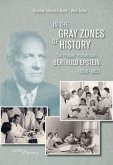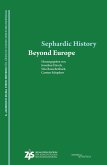Lucie Adelsberger (1895-1971) was a specialist in pediatrics and internal medicine. At her own practice in Berlin, she mainly treated patients with allergic diseases. From 1927 to 1933 she worked at the Robert Koch Institute in their newly established a center for monitoring hypersensitivity reactions. Then her permit for financial reimbursement from the health insurance companies and her license to practice medicine were terminated by the Nazis. Although she had been offered a job at the medical faculty of Harvard University, she stayed in Germany to take care of her sick mother and to continue treating her patients. In May 1943 she was deported to Auschwitz, where she was forced to work as a prisoner's doctor in the "Gypsy and women's camp" of Auschwitz-Birkenau. Shortly before the war ended, she was liberated from an external camp of Ravensbrück concentration camp. In 1946, Lucie Adelsberger emigrated to the USA, settling in New York, where she lived and worked as a doctor andcarried out cancer research. Her memoirs, which describe her time in Auschwitz, are a moving document of the Holocaust.
Hinweis: Dieser Artikel kann nur an eine deutsche Lieferadresse ausgeliefert werden.
Hinweis: Dieser Artikel kann nur an eine deutsche Lieferadresse ausgeliefert werden.








